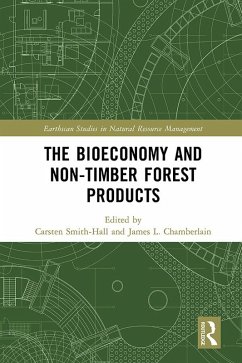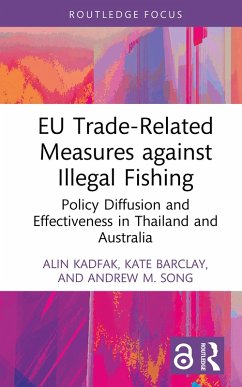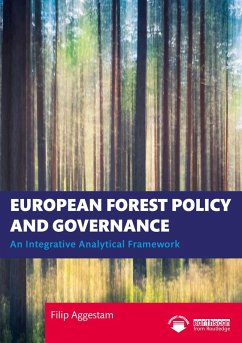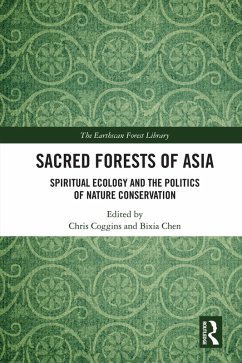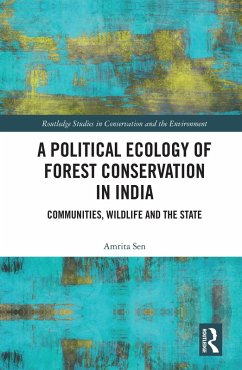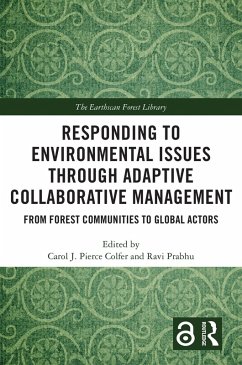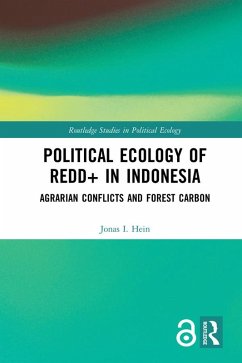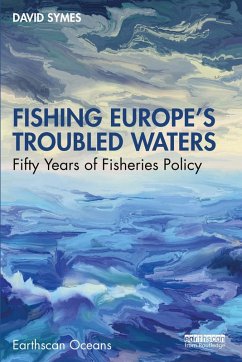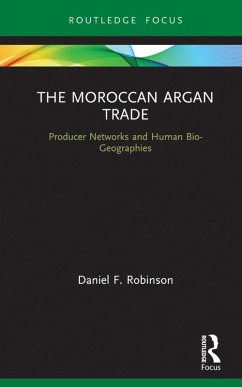
Globalisation and Livelihood Transformations in the Indonesian Seaweed Industry (eBook, PDF)
Versandkostenfrei!
Sofort per Download lieferbar
0,00 €
inkl. MwSt.
Weitere Ausgaben:

PAYBACK Punkte
0 °P sammeln!
This book explores the rapidly changing seaweed industry in Indonesia, the largest global producer of carrageenan-bearing seaweeds.Seaweed production in Indonesia has grown exponentially over the last twenty years, and rural communities across the country have embraced this new livelihood activity. This book begins with an examination of the global carrageenan seaweed industry, from the global market for carrageenan in processed foods, to the national and regional contexts in Indonesia across which it is farmed, processed, and traded. It then explores the ways that rural communities have resha...
This book explores the rapidly changing seaweed industry in Indonesia, the largest global producer of carrageenan-bearing seaweeds.
Seaweed production in Indonesia has grown exponentially over the last twenty years, and rural communities across the country have embraced this new livelihood activity. This book begins with an examination of the global carrageenan seaweed industry, from the global market for carrageenan in processed foods, to the national and regional contexts in Indonesia across which it is farmed, processed, and traded. It then explores the ways that rural communities have reshaped their lives around seaweed production, with chapters on agrarian transformations, negotiations over access to sea space, farmer decision-making in presence of environmental, social and economic constraints, the role of women and casual labourers in the industry, and the marketing of seaweed through social networks. Based on a multi-disciplinary research initiative, this book demonstrates the interrelatedness of environmental, social and economic dynamics on seaweed production, processing and trade, and argues for key policy interventions to support the sustainable development of the industry in the context of climate change. It also provides a lens for understanding and improving the broader processes of sustainable rural development in a rapidly globalising and commercialising world.
This book will be of great interest to students and scholars of aquaculture, food systems, agricultural economics, rural studies and sustainable development.
The Open Access version of this book, available at www.taylorfrancis.com, has been made available under a Creative Commons Attribution-Non Commercial-No Derivatives (CC-BY-NC-ND) 4.0 license.
Seaweed production in Indonesia has grown exponentially over the last twenty years, and rural communities across the country have embraced this new livelihood activity. This book begins with an examination of the global carrageenan seaweed industry, from the global market for carrageenan in processed foods, to the national and regional contexts in Indonesia across which it is farmed, processed, and traded. It then explores the ways that rural communities have reshaped their lives around seaweed production, with chapters on agrarian transformations, negotiations over access to sea space, farmer decision-making in presence of environmental, social and economic constraints, the role of women and casual labourers in the industry, and the marketing of seaweed through social networks. Based on a multi-disciplinary research initiative, this book demonstrates the interrelatedness of environmental, social and economic dynamics on seaweed production, processing and trade, and argues for key policy interventions to support the sustainable development of the industry in the context of climate change. It also provides a lens for understanding and improving the broader processes of sustainable rural development in a rapidly globalising and commercialising world.
This book will be of great interest to students and scholars of aquaculture, food systems, agricultural economics, rural studies and sustainable development.
The Open Access version of this book, available at www.taylorfrancis.com, has been made available under a Creative Commons Attribution-Non Commercial-No Derivatives (CC-BY-NC-ND) 4.0 license.
Dieser Download kann aus rechtlichen Gründen nur mit Rechnungsadresse in A, B, BG, CY, CZ, D, DK, EW, E, FIN, F, GR, HR, H, IRL, I, LT, L, LR, M, NL, PL, P, R, S, SLO, SK ausgeliefert werden.





